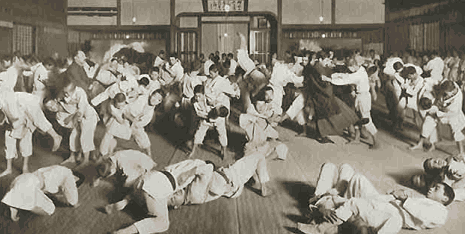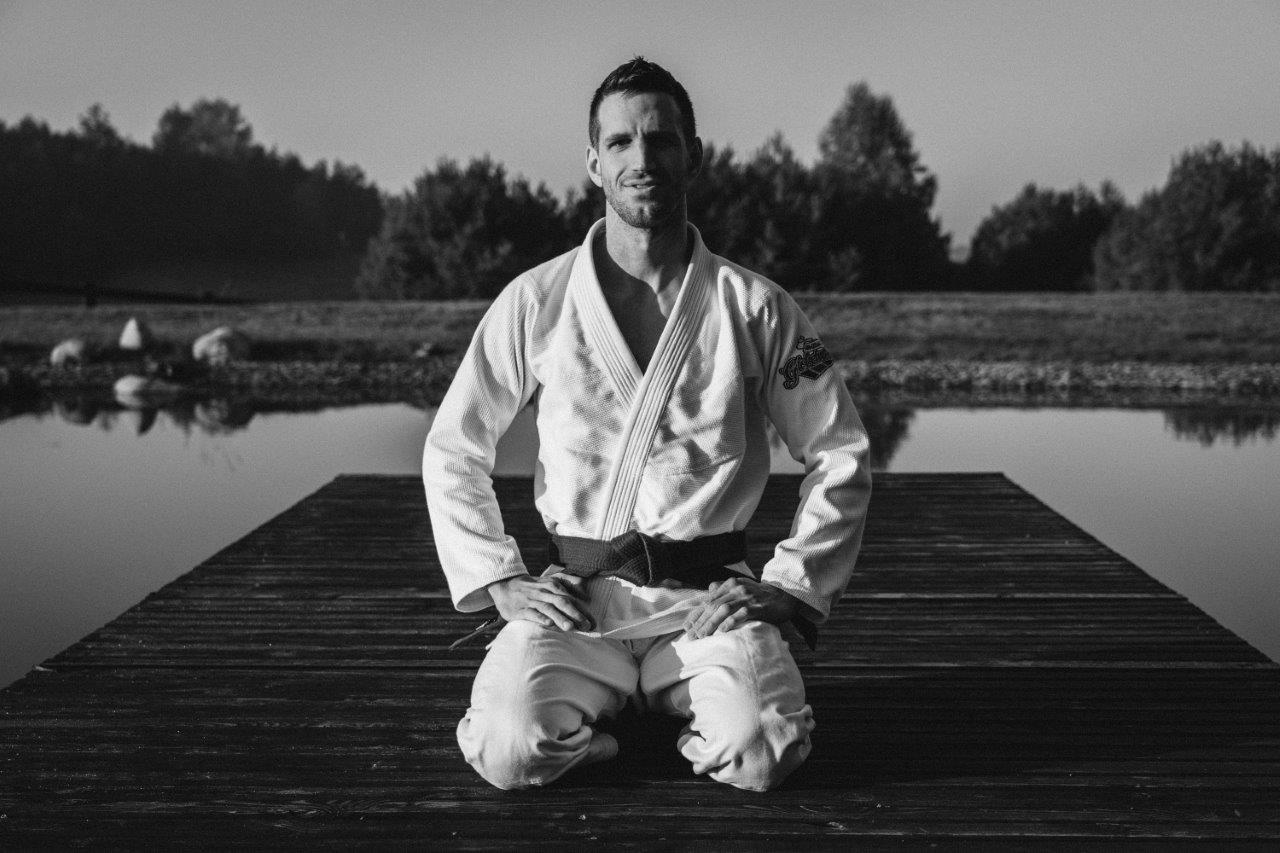Randori is Chaos
Blog by Sebastiaan Fransen, 5th dan Judo
https://www.spfransen.nl/randori-is-een-chaos/
Jigorō Kanō based judo on two fundamental teaching methods: randori and kata. In the book Mind over Muscle, he emphasizes the importance of both methods.
Kata represents the structured form used to learn judo principles, whereas randori translates as “grasping chaos.” This chaos refers to the freedom of movement since exercises are no longer fixed as in kata. Both judoka can move freely (within judo principles), creating true chaos, especially when both judoka attempt techniques simultaneously—trust me!
Naturally, principles learned through kata must be applied in randori. It remains unacceptable to use strength to compensate for a lack of technique or in a way that injures your partner. This contradicts seiryoku zen’yō (maximum efficiency with minimal effort) and jita kyōei (mutual welfare and benefit).
The Decline of Randori
Randori is essential for learning judo. Without practicing randori, judoka cannot genuinely test their application of judo principles.
Sadly, some judo clubs rarely practice randori during training, and others misuse randori by focusing solely on winning “no matter what.” Such an approach misses the essence of randori.
Fortunately, many clubs still practice randori correctly. These judoka tend to move more logically and naturally on the tatami compared to those who train only in kata or predetermined forms like yaku-soku-geiko.
One day, Mochizuki proudly told Jigorō Kanō, “Today I won two tournaments at two different schools.” Kanō replied, “Is that why you practice judo? To win tournaments? You should first tell me what you learned today from your experiences rather than simply whether you won or lost.” (The Way of Judo by John Stevens)
Randori is critical to learning judo. Perfect kata execution is excellent, but the real test comes against an opponent who also attacks and defends. Your posture (shizenhontai) and techniques (waza) must be exceptional!
Key Points in Randori
Many aspects matter in randori, but here are two particularly important points I stress when coaching:
- Control your ego. Randori isn’t about winning or losing but about learning. If you’re overly focused on the outcome, you won’t fully engage in learning. I personally experience this in Brazilian jiu-jitsu training. When fixated on winning, I rely too much on strength and aggression, limiting my learning and success. However, when I relax and disregard the outcome, I absorb far more about techniques, leverage, posture, and timing.
- Manage your strength. Controlling strength reduces injury risks significantly. Blocking techniques with force contradicts seiryoku zen’yō, increasing injury risks. During my 20 years of judo, I’ve avoided serious injuries by yielding when thrown effectively and stopping throws when control is insufficient. Additionally, relying excessively on strength masks technical deficiencies. When faced with stronger opponents, principles like debana (timing) and kuzushi (balance-breaking) become essential.
Conclusion
Randori is crucial for judoka development. Learning grammar without writing is pointless (see “The Dangers of Kata Competitions”). Once grammar is mastered, it’s time to write. This practice can be chaotic due to the freedom allowed within judo principles, but it’s essential for practical learning.
Randori can be practiced safely if judoka control their egos and manage their strength appropriately. It’s about learning, not victory or defeat.
“In randori, we teach judoka to act according to judo principles, regardless of how physically inferior the opponent might be, even if they could easily win through brute strength. If they act contrary to these principles, their opponent will never be genuinely convinced of defeat, no matter how great the strength used.” — Jigorō Kanō
I hope all judoka engage extensively in randori. It’s thrilling when either judoka executes a throw naturally and spontaneously. Being fully present and applying techniques with perfect timing according to judo principles is immensely rewarding.
I also enjoy sparring in Brazilian jiu-jitsu, admiring the dynamic groundwork and use of tai-sabaki (body shifting).
Randori provides the best learning opportunities. How effective are techniques under resistance? Can they be applied practically? That’s why randori is both challenging and indispensable!
Finally, I share a valuable quote from Kano, who often calligraphed the phrase: 順道制勝 (jundō seishō): “Regardless of winning or losing, continue following the way. Losing while following the way is more valuable than winning against its principles.”
Special thanks to Loek van Kooten for correcting the writing of jundō seishō.


